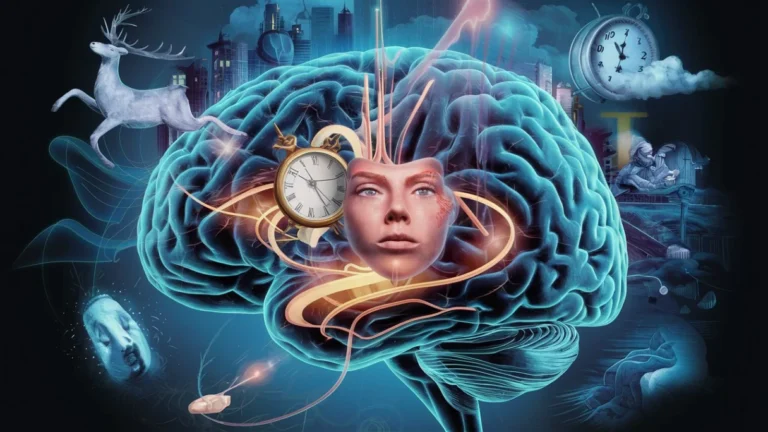The Role of Emotions in Dreams: What Your Feelings Reveal
Dreams have long been a source of fascination for humans, with their often surreal and enigmatic nature sparking countless theories and interpretations. While the exact purpose and mechanisms of dreaming remain somewhat of a mystery, one aspect that has garnered significant attention is the role of emotions in dreams. In this blog post, we’ll explore how emotions shape our dream experiences and what insights we can gain from understanding this connection.
The Emotional Landscape of Dreams
Dreams are not just visual experiences; they are also deeply emotional ones. The emotional content of dreams can range from euphoric joy to heart-wrenching sorrow, and everything in between. Research has shown that the most common emotions experienced in dreams are:
- Anxiety
- Fear
- Anger
- Sadness
- Happiness
Interestingly, negative emotions tend to be more prevalent in dreams than positive ones. This may be due to the brain’s tendency to process and cope with unresolved emotional conflicts and stressors during sleep.
The Link Between Waking Emotions and Dream Content

Our waking emotional state can significantly influence the content and emotional tone of our dreams. Studies have found that individuals who experience more negative emotions during the day, such as stress, anxiety, or depression, are more likely to have emotionally charged and unpleasant dreams at night – https://hiddensignificance.com/. Conversely, those who maintain a more positive emotional state during waking hours tend to have more pleasant and less emotionally intense dreams.
This link between waking emotions and dream content suggests that dreams may serve as a way for the brain to process and regulate emotions. By “playing out” emotional scenarios and conflicts in the dream world, the brain may be attempting to make sense of and resolve these issues, leading to improved emotional well-being upon waking.
The Role of REM Sleep in Emotional Processing
Rapid Eye Movement (REM) sleep, the stage of sleep associated with the most vivid and emotionally charged dreams, has been found to play a crucial role in emotional processing and memory consolidation. During REM sleep, the brain is highly active, with increased activity in regions associated with emotion, such as the amygdala and the limbic system.
This heightened emotional activity during REM sleep may serve several purposes:
- Emotional memory consolidation: REM sleep may help to strengthen and consolidate emotionally significant memories, allowing them to be better integrated into our long-term memory networks.
- Emotional regulation: The emotional intensity of REM sleep may help to “reset” the brain’s emotional baseline, allowing for better emotional regulation and coping during waking hours.
- Emotional problem-solving: The dream world may provide a safe space for the brain to explore and test out different emotional scenarios and responses, helping to develop more adaptive coping strategies.
The Therapeutic Potential of Dream Analysis
Given the strong link between emotions and dreams, many mental health professionals have recognized the potential therapeutic value of dream analysis. By exploring the emotional content of dreams, individuals may gain valuable insights into their unconscious emotional states, unresolved conflicts, and coping mechanisms.
Some potential benefits of dream analysis include:
- Increased self-awareness and emotional intelligence
- Identification of underlying emotional issues and conflicts
- Development of more adaptive coping strategies
- Enhanced creativity and problem-solving skills
It’s important to note that while dream analysis can be a useful tool for personal growth and emotional well-being, it should not be considered a substitute for professional mental health treatment, especially in cases of severe emotional distress or mental illness.
Techniques for Enhancing Emotional Dream Recall
If you’re interested in exploring the emotional content of your dreams, there are several techniques you can use to enhance your dream recall and gain greater insight into your unconscious emotional world:
- Keep a dream journal: Keep a notebook and pen by your bedside and write down your dreams immediately upon waking. Pay particular attention to the emotions you experienced in the dream and any associations or insights that come to mind.
- Set an intention: Before going to sleep, set an intention to remember your dreams and to pay attention to their emotional content. This can help to prime your brain to focus on emotional processing during sleep.
- Practice good sleep hygiene: Ensuring that you get enough quality sleep can help to enhance your dream recall and emotional processing. Aim for 7-9 hours of sleep per night, maintain a regular sleep schedule, and create a relaxing sleep environment.
- Engage in reflective practices: Incorporating practices such as meditation, journaling, or therapy into your daily routine can help to increase your emotional awareness and enhance your ability to process and integrate the emotional content of your dreams.
Conclusion
The role of emotions in dreams is a complex and fascinating area of study, with important implications for our emotional well-being and personal growth. By understanding the link between waking emotions and dream content, the role of REM sleep in emotional processing, and the potential therapeutic value of dream analysis, we can gain valuable insights into our unconscious emotional world and develop more adaptive coping strategies.
Remember, while dreams can be a powerful tool for emotional exploration and growth, they should be approached with curiosity, openness, and a willingness to engage in honest self-reflection. By embracing the emotional landscape of our dreams, we open ourselves up to a deeper understanding of our inner world and a greater capacity for emotional resilience and well-being.




